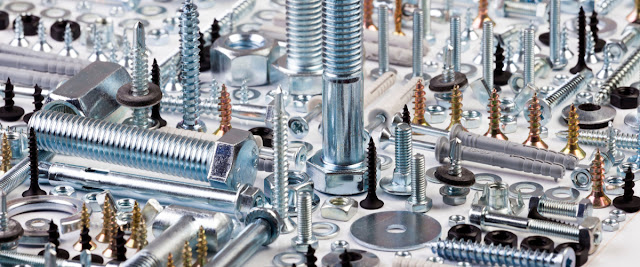Are You Aware of High-Temperature Fasteners?
Fasteners
– they are among the most important components required in almost every
industry & every application. They are used for connecting two parts firmly
with each other. There are various types of fasteners (also referred to as
bolts) used today. Each type has its own set of properties, features, pros, &
cons. Depending on the application, the type of fastener is made and such type
of fastener is the high-temperature fastener. As the name suggests, these
fasteners are specially designed to withstand high temperatures. Are you
intrigued to know more about this type of fastener? This post by fasteners
manufacturer in Australia is aimed at filling you in with information
about these bolts.
What
Generated the Need for the High-Temperature Fasteners?
Regular
metal fasteners have the capacity to melt when the temperature crosses the
quadruple digits, that is, 1000°F and more. At such high temperatures, these
fasteners can undergo oxidation, which is basically a faster form of corrosion &
rusting.
Let
us consider one more example. Machinery which uses regular metal fasteners.
When machinery gets heated above a certain temperature, the metal fasteners
attached to it expand & exert pressure on the holes that they are driven
into. When the machinery is not in use it cools down which contracts the metal
fasteners & makes them loose within the holes. To know more about other fasteners,
visit fasteners
exporter in Australia.
This
was the reason for introducing the special high-temperature fasteners which
have the capability to withstand the alternate phases of extreme heat &
cool down efficiently without getting damaged.
What
are the Different Types of Alloys Which are used to Make High-Temperature
Fasteners?
The
high-temperature fasteners are made with selected alloys & other metals
whose properties match those required by the high-temperature fasteners. These
are the following certain alloys which qualify for use in these fasteners:
- Nickel Alloys: Some
common nickel alloys, such as Inconel 600, 625, & 718 are used in these fasteners. They have a good oxidation resistance & can survive high temperatures in the range from 1800 °F – 2000 °F.
- Stainless Steel 630: Exceptional hardness, great strength, & strong
ductility makes this alloy ideal for use in high-temperature fasteners. Stainless
steel 630 is made extra hard by cold working & aging at low
temperatures.
- Stainless Steel 309 & 310: The reason these two alloys are used for the
high-temperature fasteners are that they have a higher content of chromium &
nickel as compared to other alloys.
- A-286 Alloy: This
is an alloy of iron, nickel, & chrome. The A-286 alloy is age hardenable & has great strength. It features an exceptional oxidation
resistance & has the capability to withstand temperatures as high as
1300 °F.
If you want to buy high-quality fasteners,
visit fasteners
suppliers in Australia.
What
are the Different Types of these Fasteners?
There
are three basic types of these special fasteners which are as follows:
- High-Temperature Advanced Ceramic Fasteners
- Specialty High-Temperature Metal Fasteners
- High Temperature Engineered Polymer Fasteners
If
you are searching for fasteners for your product involving high temperatures
then your choice is these special types of bolts. You can consult experienced
professionals & you will get the same answer. There are a number of
expert manufacturers of high-temperature fasteners in Australia. One
such an expert manufacturer is Caliber
Fasteners Screw Machine Parts who has vast experience & skilled &
knowledgeable staff.




Comments
Post a Comment